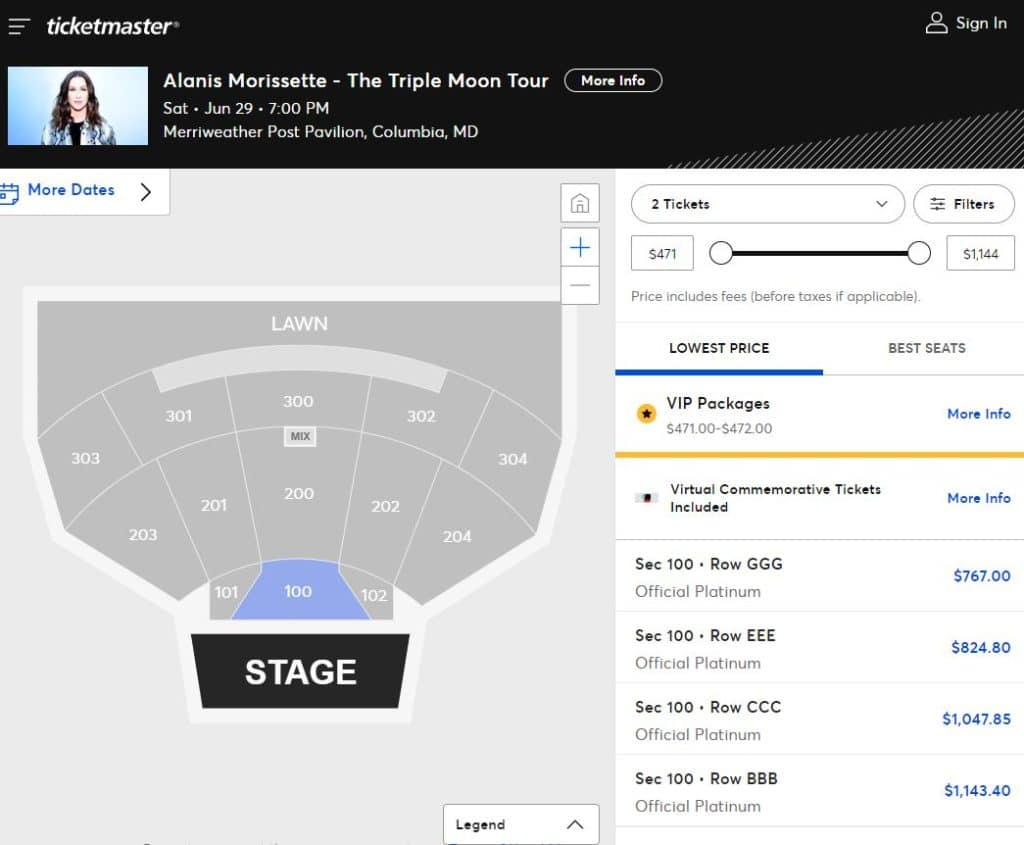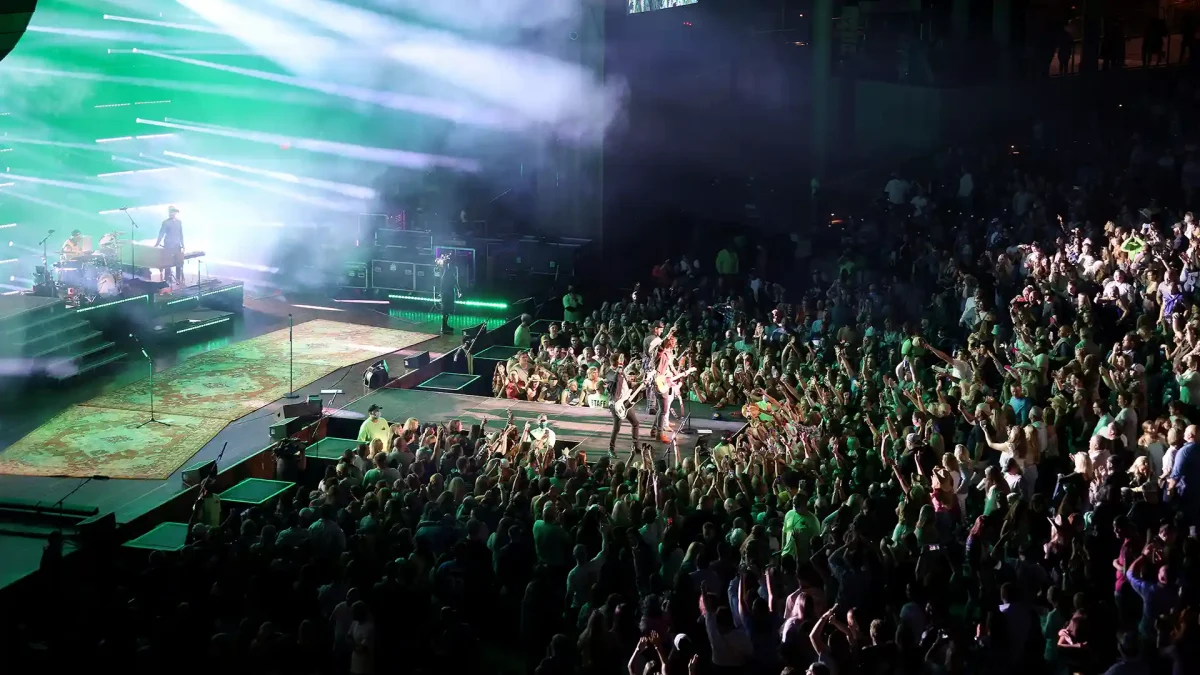A lobbyist representing the National Independent Venue Association is receiving pushback from TicketNetwork over testimony given before the Maryland General Assembly in February. Claims that the Connecticut-based ticket resale marketplace and other independent resale platforms charge exorbitant prices given in support of legislation designed to eliminate consumer ticket resale rights in Maryland was deliberately lacking in context and misleading in multiple ways, according to a spokesperson.
“Ticket network posted $150 tickets for Alanis Morissette at $7,000. SeatGeek lists Hozier tickets, which we sold for $99, at $5,000,” Audrey Fix Schaefer, representing NIVA and I.M.P Concerts, told the Maryland House Economic Matters Committee in Annapolis at a February 20 hearing. But both the high asking price on the resale marketplaces and the comparably reasonable-sounding box office prices cited were cherry-picked to prove the industry-backed narrative rather than reflective of the true consumer experience.
“TicketNetwork is a resale marketplace, and sellers can list tickets for sale at any price they choose,” says Sean Burns of TicketNetwork. “That said, only tickets priced to what consumers are willing to pay will be purchased, a fact which the NIVA lobbyist knew all too well while selecting the most outrageous outlier prices she could find in hopes of convincing lawmakers that independent resale marketplaces are the problem.”
“In the real world, the average price for a ticket sold through the TicketNetwork exchange for the two Merriweather Post Pavilion shows on Alanis Morissette’s tour this summer currently stands at $128,” he continued. “Meanwhile, on the venue’s own “official” sales platform, surged platinum tickets are listed for more than $1,100 after fees – more than seven times the $150 face value implied in her testimony.”
A TicketNews review of both the ticket resale platform and Ticketmaster – I.M.P.’s “official” box office partner for Merriweather Post Pavilion – showed this to be accurate. For the Saturday show (which was initially the only one announced before a second Sunday show was recently tacked on), the small number of remaining box office tickets were all surged to far above the listed “face value” range of $40-150 that the venue website claims is in place.

Tickets for the second show on Sunday were also surged dramatically in most instances, with only a small number of lawn seats and back-row 200-level seats showing the purported “face value” figure as available for purchase.
Tickets available through the resale marketplace for Saturday ranged from $81-$1,538, with Sunday prices ranging from $56-$3,024 as of Thursday afternoon. Burns also pointed out that the ticket prices could rise or fall entirely dependent on demand and what sellers on the marketplace are willing to accept for them, rather than subject to price floors put in place by event operators, as commonly practiced on venue box offices.
FURTHER READING | Tanking Tulsa Date Shows Springsteen using Floor Pricing on Tour
Lawmakers across the United States have been considering multiple changes to the ticketing regulatory landscape at both the federal and state levels, driven by fan anger over the skyward surge of ticket prices experienced by consumers in the post-COVID return to live events. Both Live Nation Entertainment’s enormous lobbying apparatus and efforts driven by NIVA and Oak View Group leader and former Live Nation boss Irving Azoff have been at the forefront, making every effort to sell lawmakers on a need to eliminate ticket resale marketplaces rather than see their own behavior subject to any new laws.
FURTHER READING | FANS First Ticket Act Announced – Notably Lacking Fan Support
Efforts to put their legislative effort into play at the national level have thus far stalled – Live Nation’s preferred “Fans First” legislation hasn’t gained traction, due to a combination of partisan bickering and a recognition even by the bill’s co-author that it failed to bring useful improvement to the consumer experience unless it was paired with an anti-trust breakup of Live Nation.
FURTHER READING | Sen. Klobuchar: One-Sided Fans First Act Demands Further Action
Any attempt to bring forward legislation that makes common-sense changes to both ticket resale and the primary ticket sales apparatus have been met with fierce resistance by venue and industry lobbyists. The BOSS and SWIFT Act, championed for reforms including “all-in” ticket pricing and regulation of so-called “speculative” ticket sales tactics, has been fiercely resisted because it would also require transparency on actual ticket availability, which would cripple the sleight of hand on availability required to make “dynamic” ticket pricing strategies effective.
A recent hearing in Florida brought fierce industry resistance to a bill that would have banned the use of “dynamic” ticket pricing entirely, with industry lobbyists attempting to claim that banning the practice of surging prices on the primary marketpace would itself somehow encourage higher prices on ticket resale websites.
FURTHER READING | Florida Bill Banning Price Surging Dies After Venue Resistance
“It’s clear that the venue and promoter lobby has minimal interest in legislation that would actually bring meaningful change to the consumer ticketing experience,” Burns told TicketNews Thursday. “They are merely looking to exploit consumer anger to encourage laws that take away the only meaningful competition that exists in ticketing – an open and transparent ticket resale option.”




